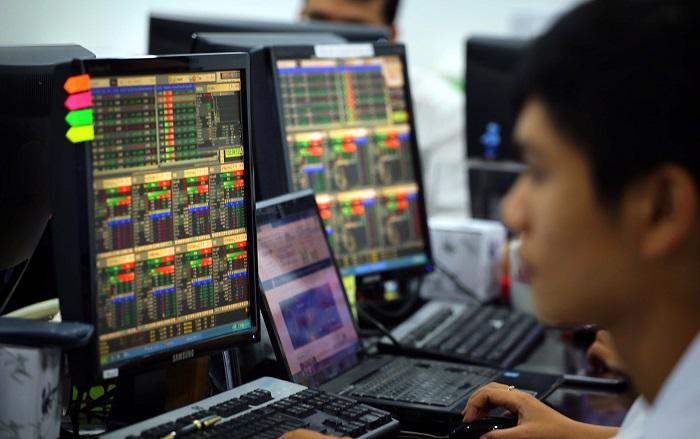Russia-Ukraine conflict to halt Vn-Index rise in short term
Tension in Europe is the most concerning issue for investors at the moment, and the aggravation of the situation could impact the local stock market in the short term.
The ongoing Russia-Ukraine conflict may halt the benchmark Vn-Index’s upward trend in the short term, according to the BIDV Securities Company (BSC).
| Investors at a securities company in Hanoi. Photo: Viet Dung |
“Tension in Europe is the most concerning issue for investors at the moment, and the market, therefore, is unlikely to rise in the coming days,” BSC said in its latest report.
Given the current context, BSC predicted the Vn-Index to fluctuate around 1,485-1,515 this week, noting the market would have to wait for a few more sessions to see if it can move up to the next resistant zone.
BSC’s report also points out certain economic sectors which are subject to the direct impacts of the current global situation, namely oil, fertilizer, and steel industries.
Russia is currently the world’s third-largest oil exporter, as such, a disruption from Russia’s oil and gas supplies to Europe would negatively affect the international energy market.
“Rising oil prices, in that case, would benefit the oil industry,” stated the BSC, referring to companies in the field of oil exploration and production such as the PetroVietnam Technical Services Corporation (PVS) or PetroVietnam Drilling and Well Services (PVD).
Meanwhile, growing demands for the consumption of petroleum products would be welcome news for transport and retail companies such as PVT, PLX, or OIL.
The BSC also expected a similar impact on the fertilizer industry, due to a ban on Russia’s exports of ammonia nitrate, which results in rising prices of fertilizer products in the global market.
The situation was not helped by the fact that China still maintains the policy of restricting fertilizer export to support the local market.
“Energy shortage and rising input materials are making the situation worse,” it continued and recommended stocks such as DPM, DCM in the field.
The steel industry is another sector set to see a surge in prices, given the fact that Russia remains the second-largest steel exporter to the EU. The ban on transactions imposed on Russia would mean an opportunity for other bloc’s suppliers, especially companies that are focusing on exporting galvanized steels to the EU such as NKG or HSG.
On the contrary, the prospects of the local husbandry industry would be grim due to rising prices of animal feed, with Russia being the largest exporter of wheat, Ukraine as the third largest, and also the fourth in corn export.













